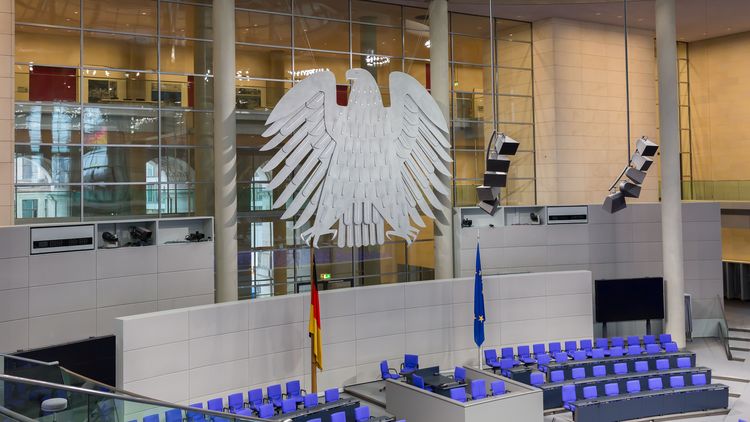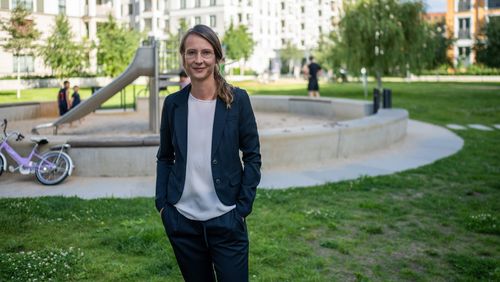Various studies, most recently the so-called „Mitte Studie” by the Friedrich Ebert Foundation, indicate: Right-wing extremist attitudes are on the rise among the population, and trust in democracy appears to be fragile. In an interview, political educationalist Tonio Oeftering talks about democracy as a way of life and when universities need to take a stand.
Mr Oeftering, how do we communicate the value of democracy?
We need more education and a better understanding of democracy. Because democracy is something we have to learn, and we have to learn it throughout our lives. At the same time, democracy cannot be taught and learned in the abstract. When I experience concretely in my life: I can do something or someone does something for me, then I experience that I can make a difference. That is when I experience democracy.
Democracy is a form of government...
But it is also a way of life and a way of society. We need personal and social skills such as empathy, affect control, judgement, perspective taking or tolerance of ambiguity - in other words, the ability to tolerate uncertainty or insecurity. This is the only way we can live together in a democratic society. Unfortunately, some people lack these capacities. Democracy must also be experienced at the societal level - in schools, organisations or companies. Here, too, there is a need to catch up. If, for example, pupils have a say in the design of their schoolyard, they may experience that problems are not easy to solve, that it takes a long time and that it is difficult to come to an agreement. But in the end there is a result, a decision that is supported by the majority.
Is conflict part of the political discourse?
Absolutely. It takes time, but we cannot do without it. The question is how these conflicts are conducted and what comes out of them. It is precisely those in political office who have to bring democracy to life at all levels. And in the end, democracy has to prove itself through good action. So if we look at democracy as a system of political governance, at our institutions from the local level to the Bundestag, then one of the outcomes of politics would have to be, for example, that a progressive social division between rich and poor is credibly addressed. Otherwise, people will turn their backs on democracy out of disappointment and call on the - supposedly - strong person to stop the bickering. Politics must rise to this challenge. Part of this is to explain the complexity of the problems. A difficult task for politics - and for civic education.
Promoting understanding of political processes and democracy is one of the tasks of the state and federal centres for political education. How important is this work - especially against the background of growing anti-democratic attitudes?
Very important. The approach of the federal and state centres is to inform, to make democracy tangible and to facilitate personal encounters, also for adults. This is important because we can no longer reach adults who share right-wing extremist attitudes but are not yet completely closed to the discourse through school education. Moreover, extracurricular activities can usefully complement school education - also because they follow a different logic, for example because they are voluntary. In this respect, it would be a fatal signal if funding for the Federal Centre were to be cut, as is currently planned.
Lower Saxony was the only federal state that did not have a state centre for political education for several years, and it was only founded in 2017. You have evaluated the work there. What are the main points?
The special thing about the Lower Saxony Centre is that it primarily offers digital services. For example, there is an app that teaches you how to resist the slogans in the pub. We rated the team's work positively. However, the digitalisation strategy has its limits, as not all target groups can be reached with digital formats. In addition, the regional centre in Hanover does not have rooms that are open to the public - a major disadvantage, since, as I have said, political education lives above all from personal encounters.
Let's get back to democracy as a way of life. What can I achieve as an individual - for example in personal encounters?
Democracy as a way of life also means showing civil courage in everyday life and opposing anti-democratic tendencies - without putting oneself in danger, of course. The normalisation of right-wing thinking right into the middle of society is a central problem. If we want to preserve and improve democracy, then everyone must make it clear that there are developments we do not want. Not least the reunification we will celebrate on 3 October shows how valuable democracy is, given the experience of dictatorship in East Germany. But those who make policy must not pass the buck to the citizens. They have to overcome the socio-economic divide, for example, and, on another level, they have to be able to deal with conflicts, change perspectives or endure contradictions just like the rest of us.
What is the role of universities in this context?
Universities are a space of discourse where different views are expressed - always on the premise of seeking the truth. In my view, socio-political positioning is particularly important when it comes to the foundations of higher education. Universities are quick to fall victim to anti-democratic processes - authoritarian regimes have no interest in free universities. Universities must therefore see themselves as part of democracy and also stand up for democracy.
Interview: Constanze Böttcher




